

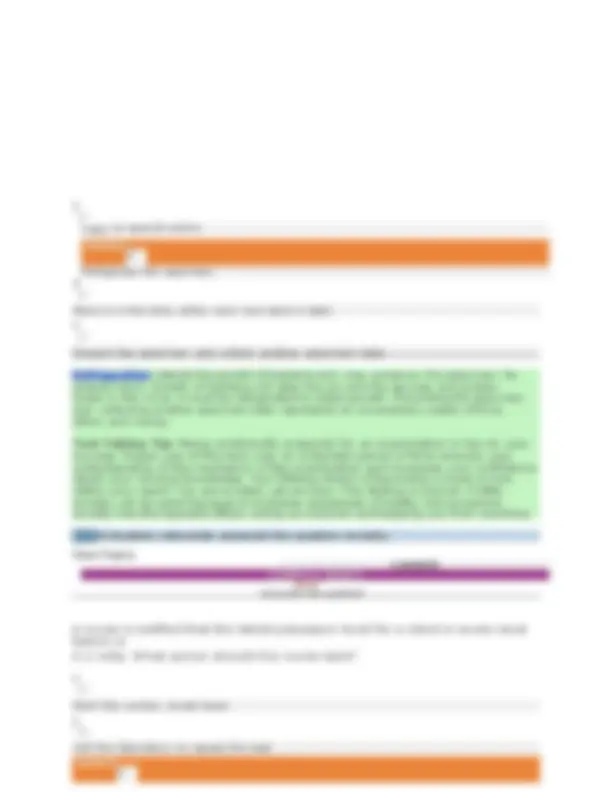
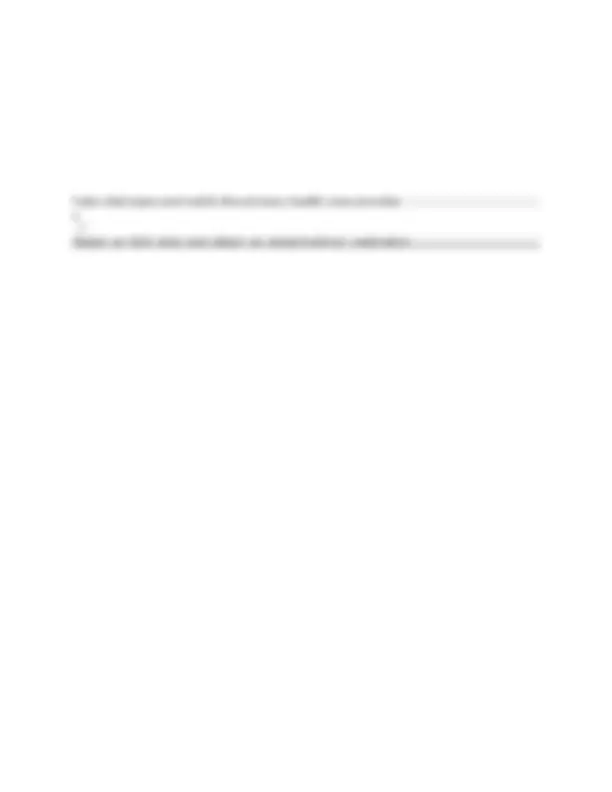
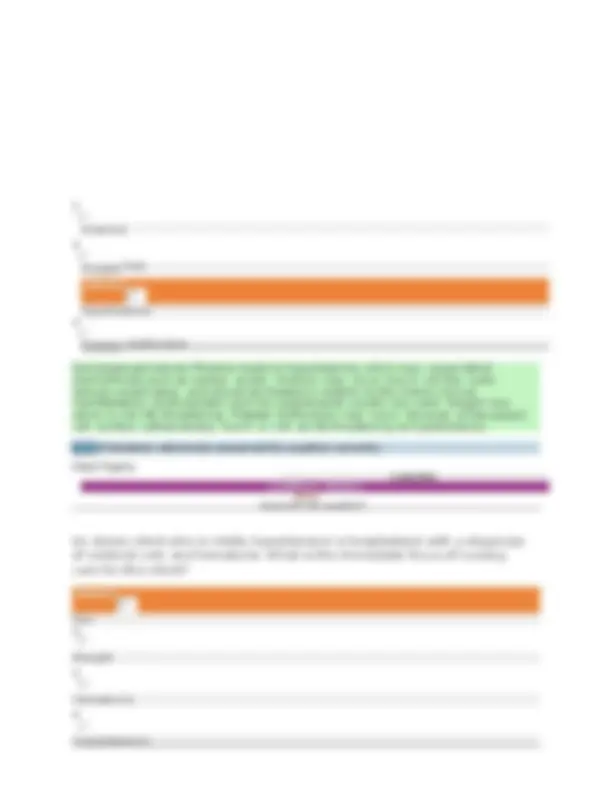

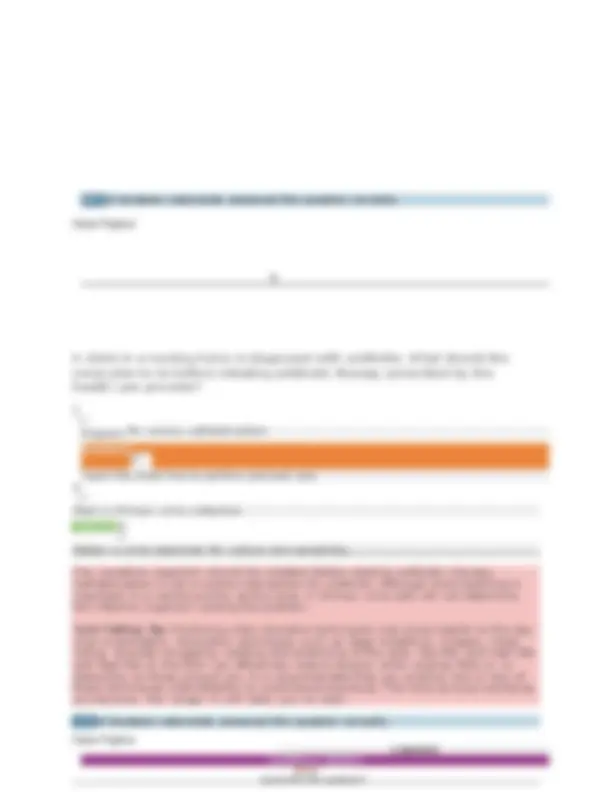

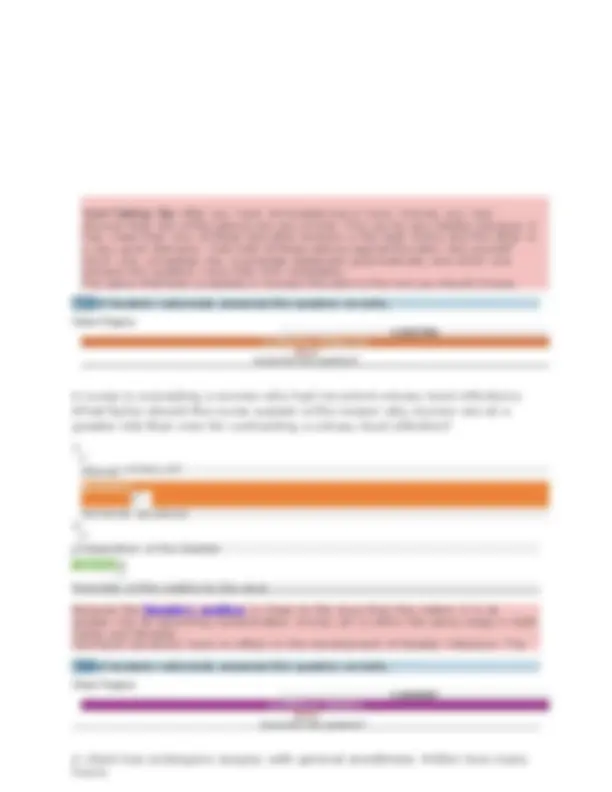

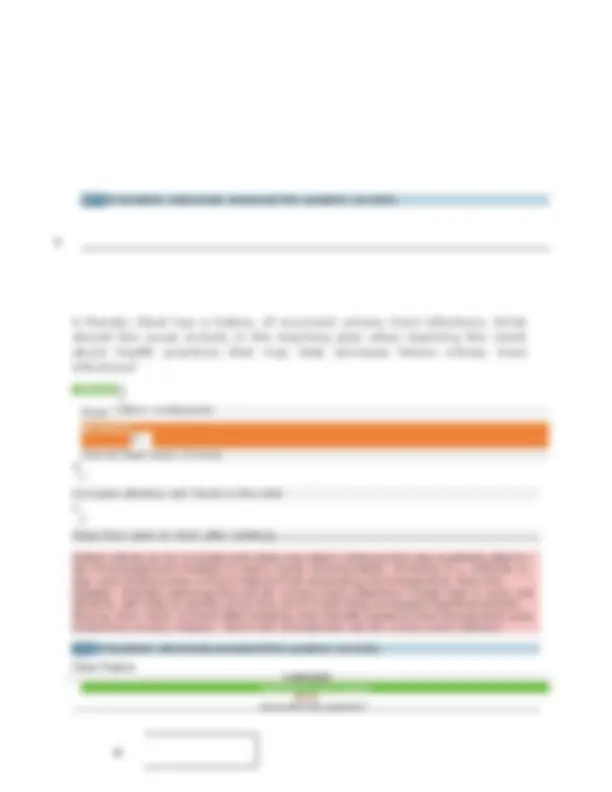
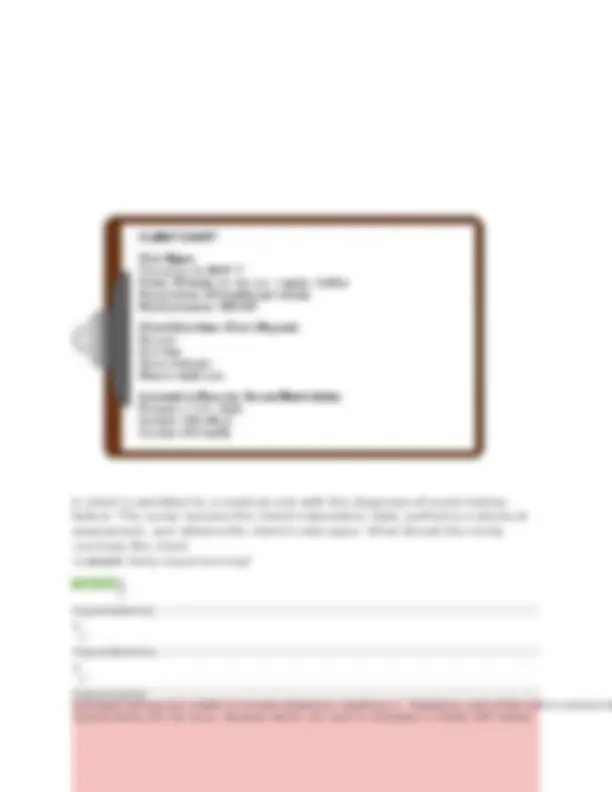

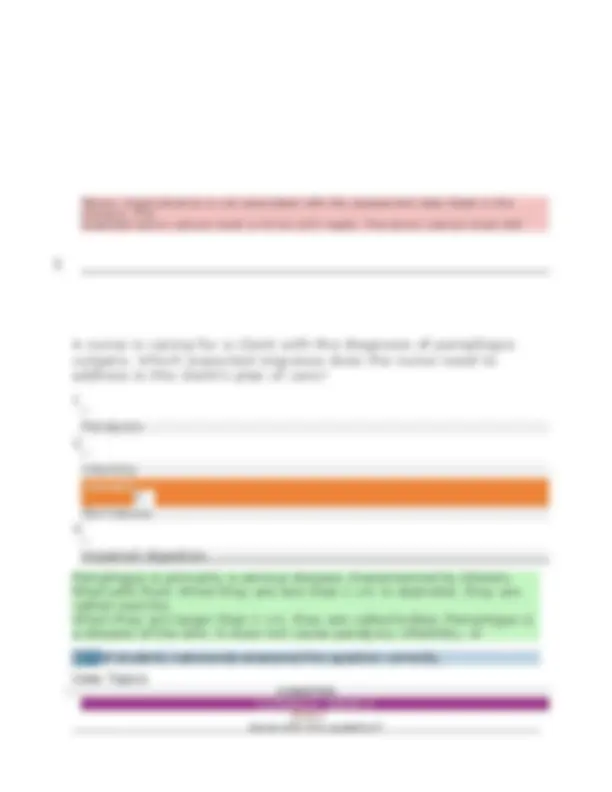

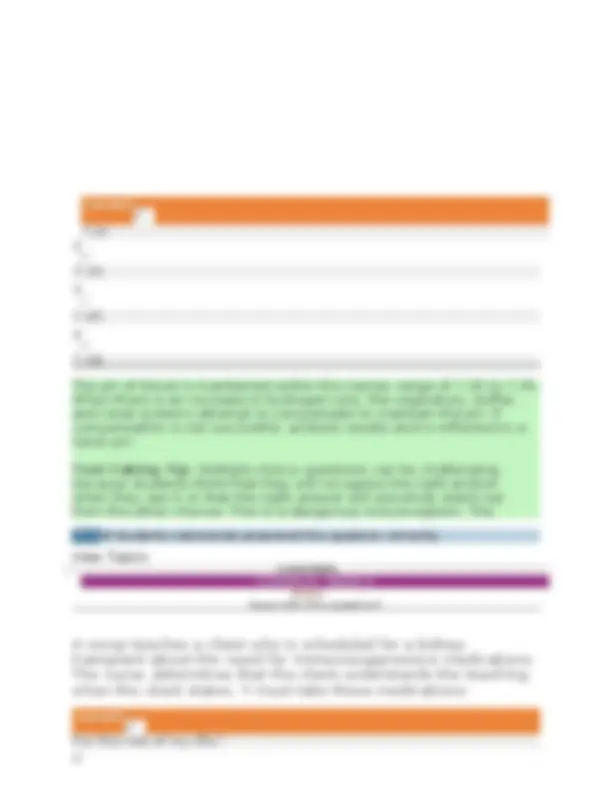

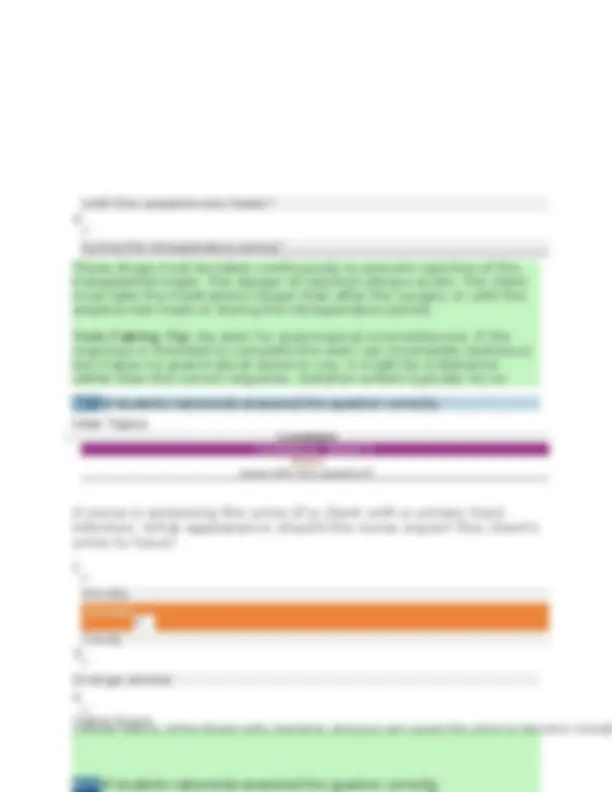

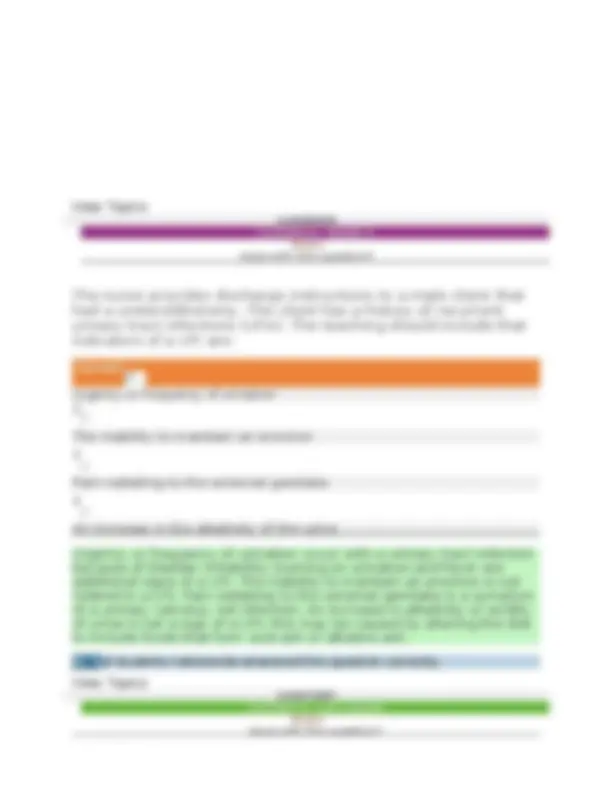

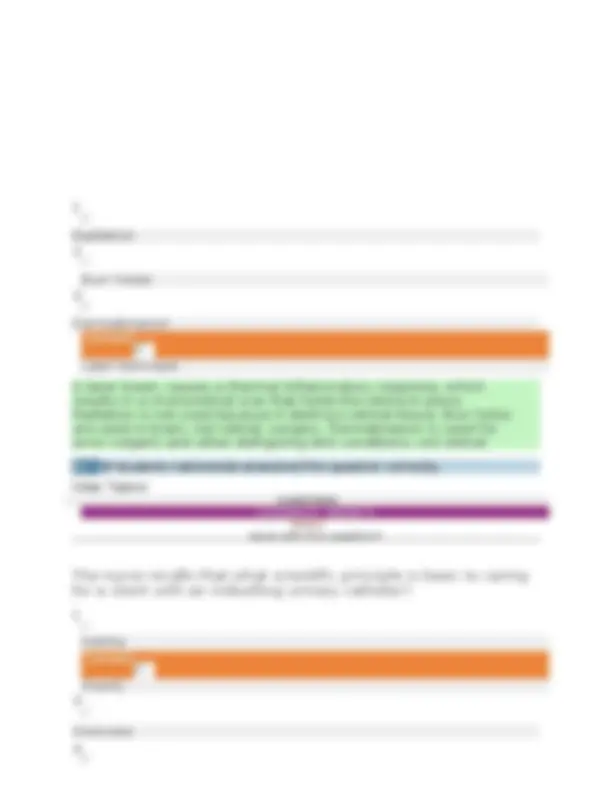
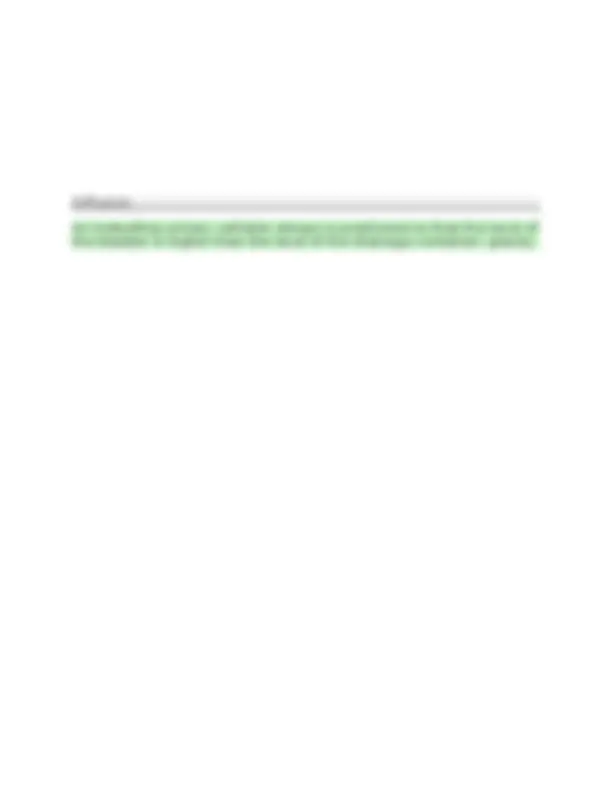
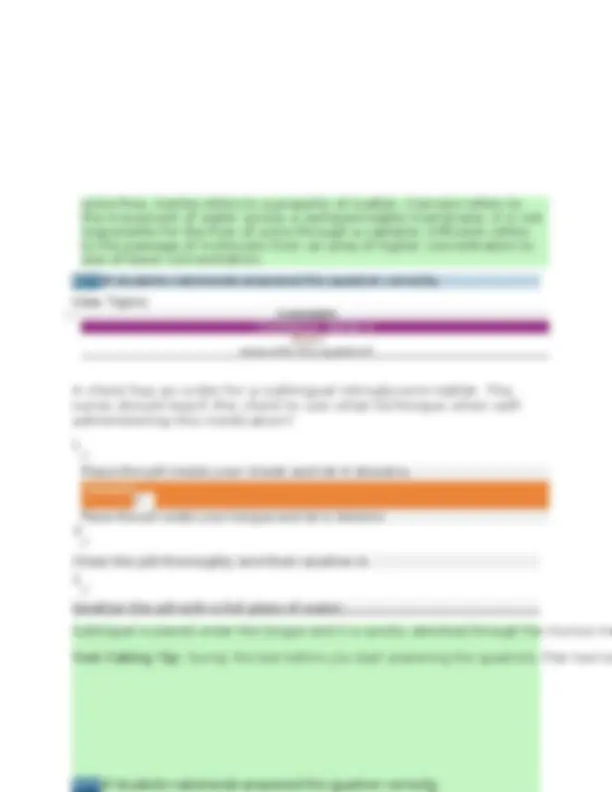

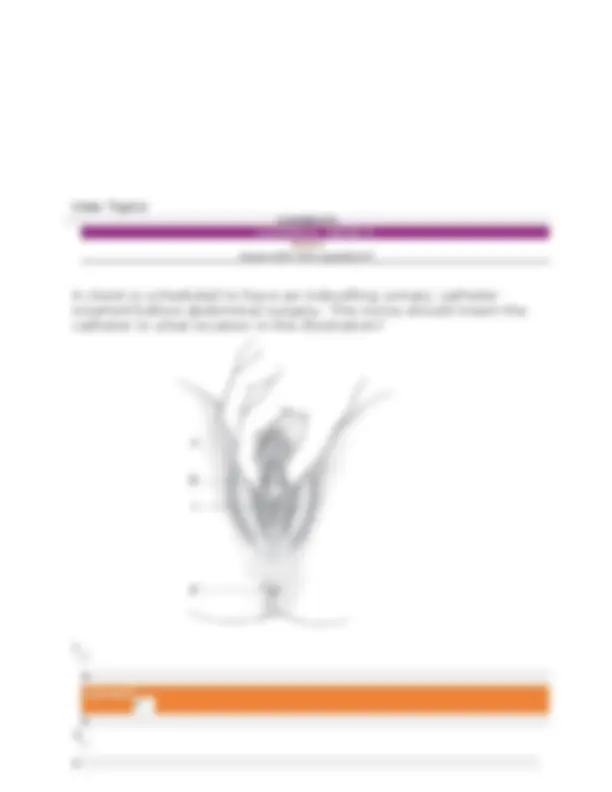

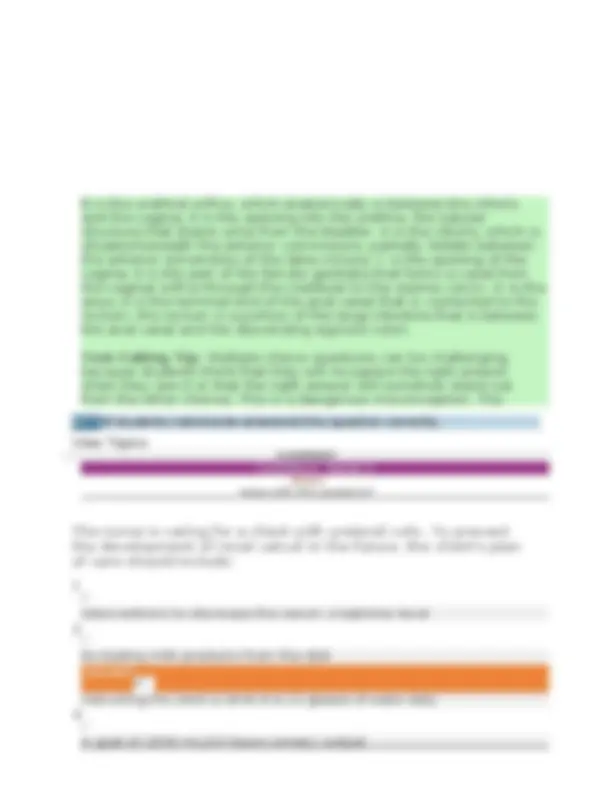

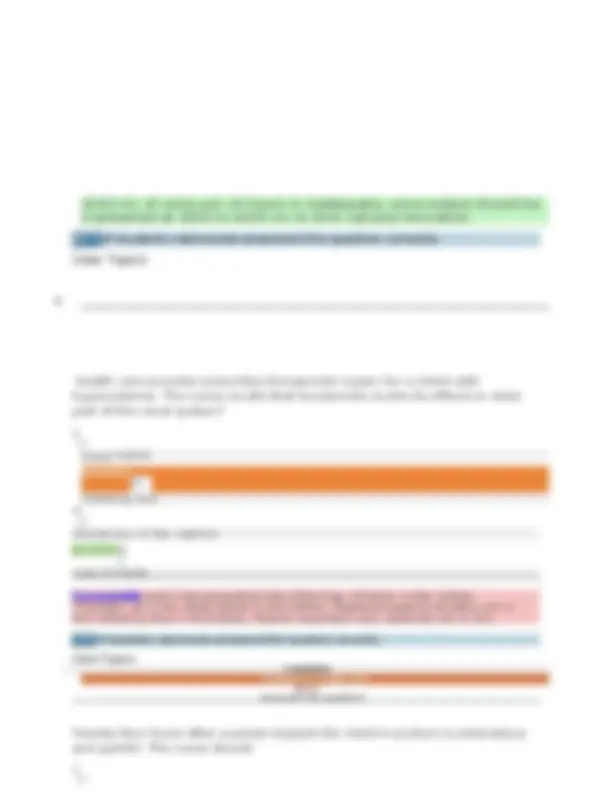

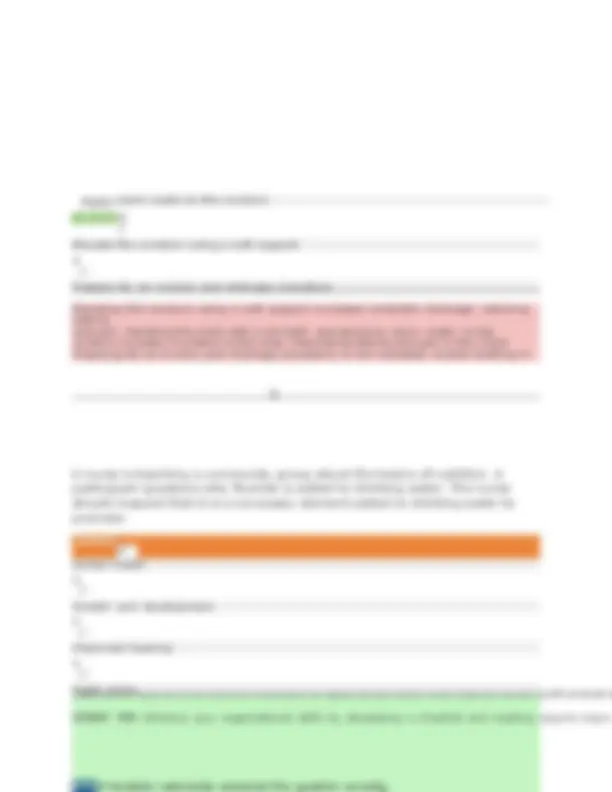

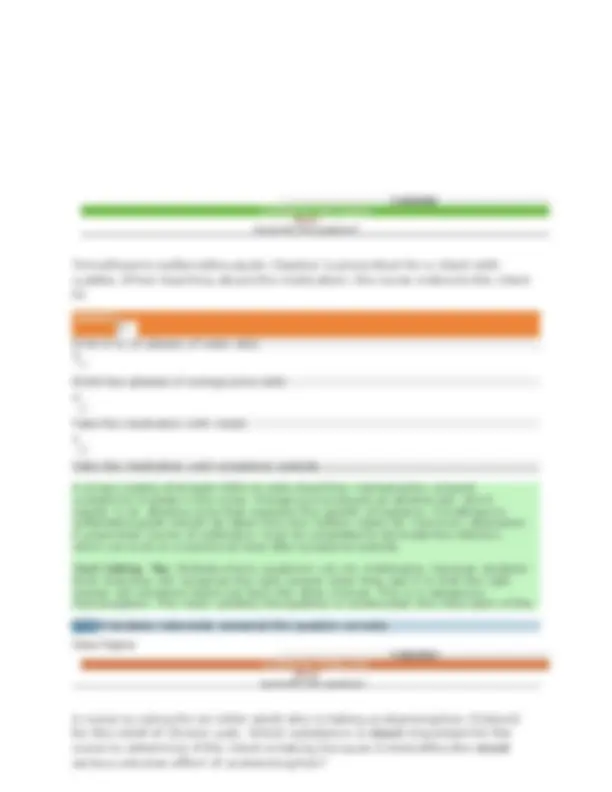

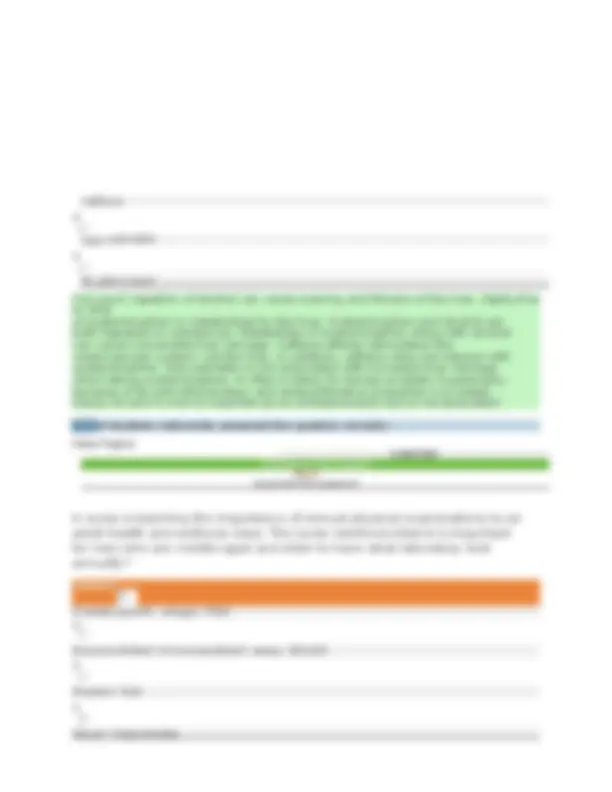

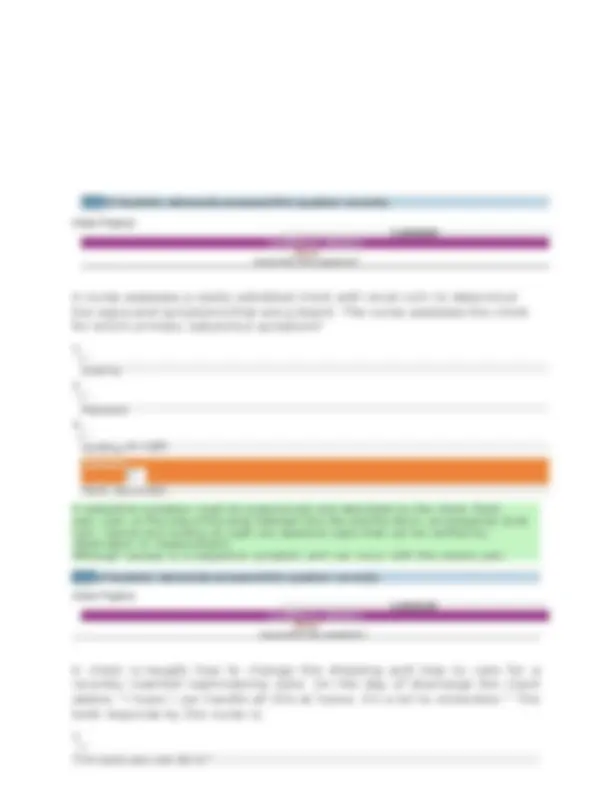

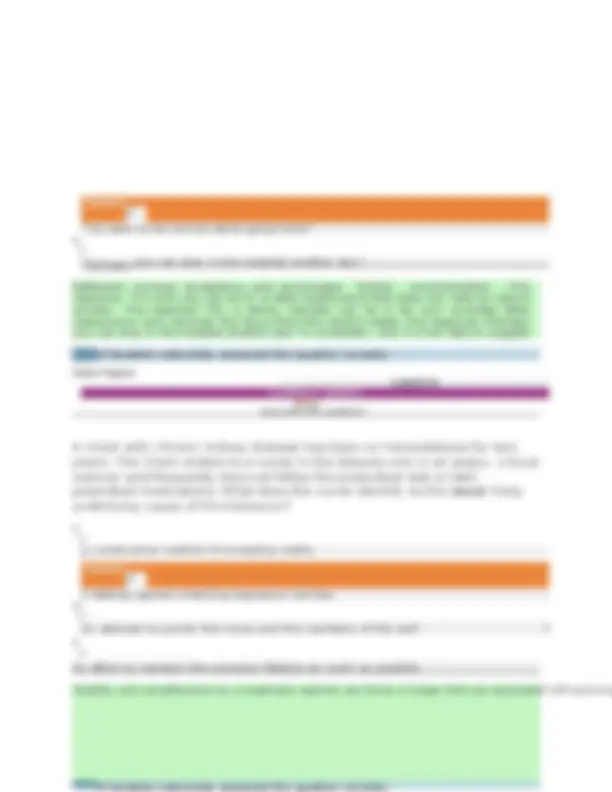

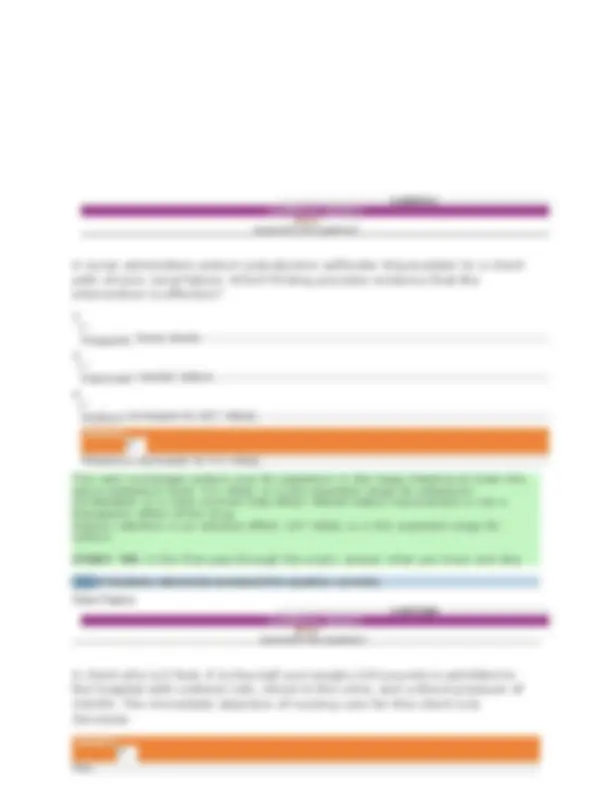

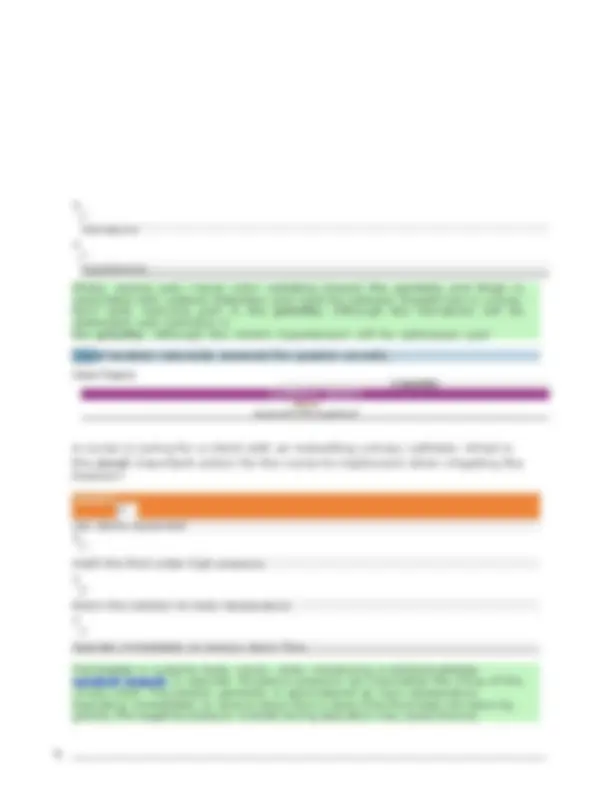
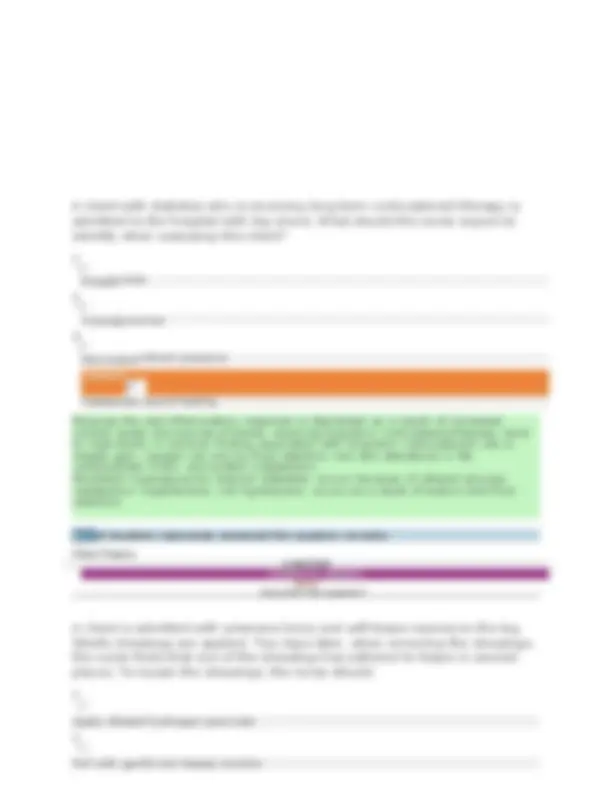

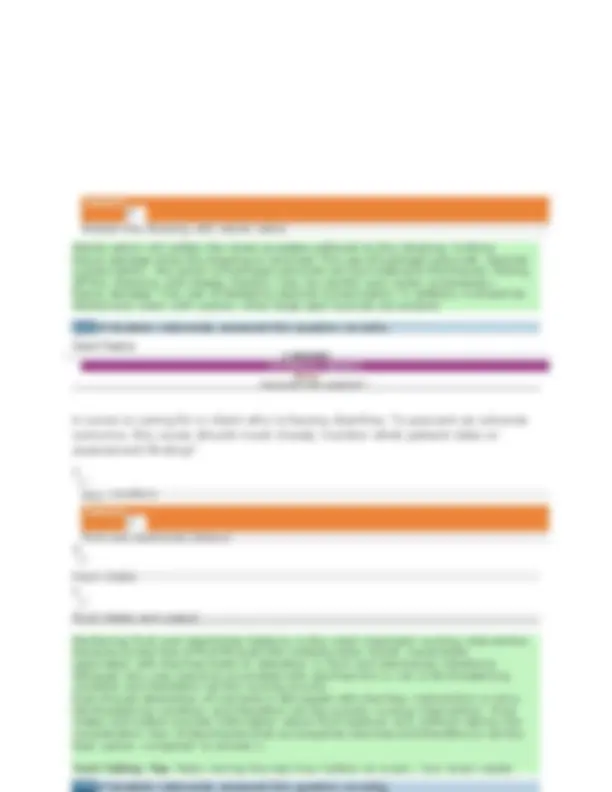

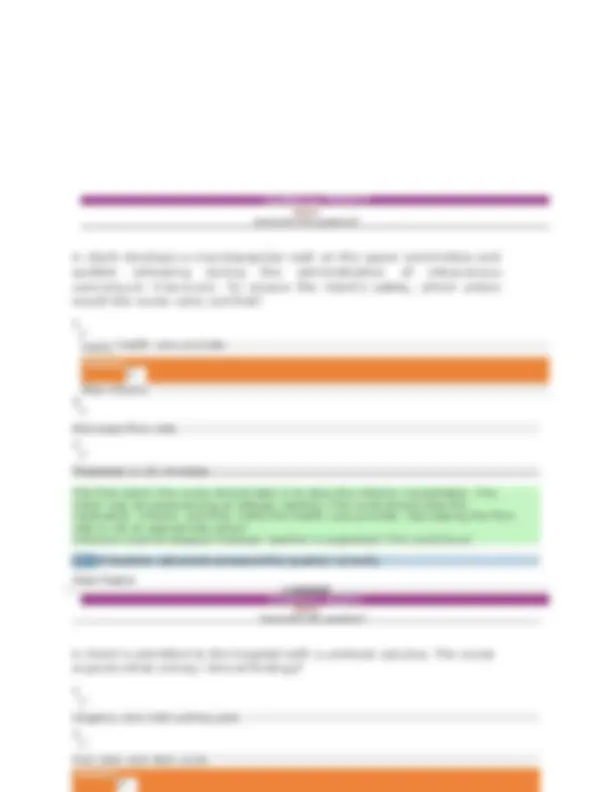

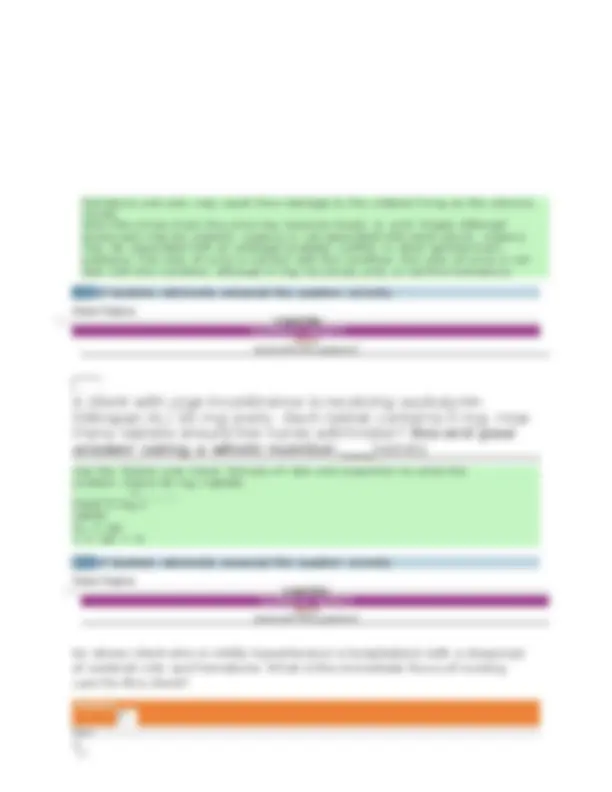

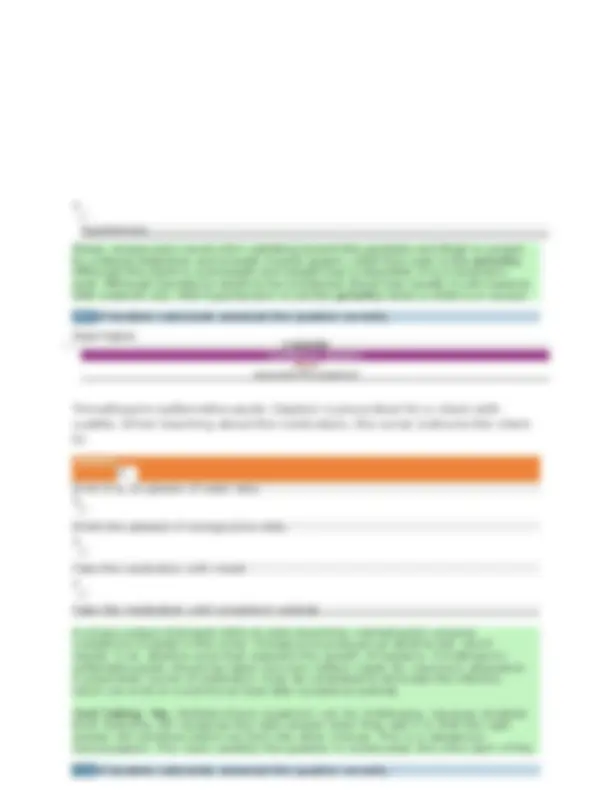

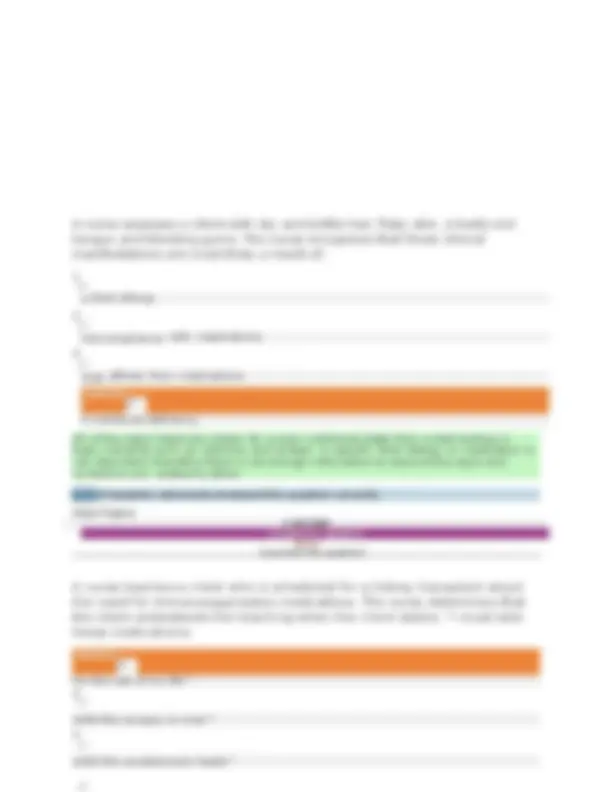

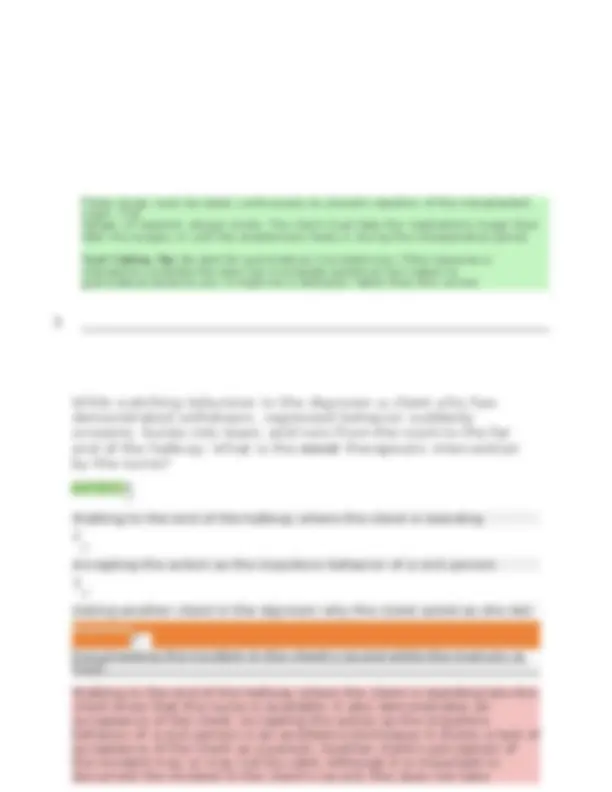

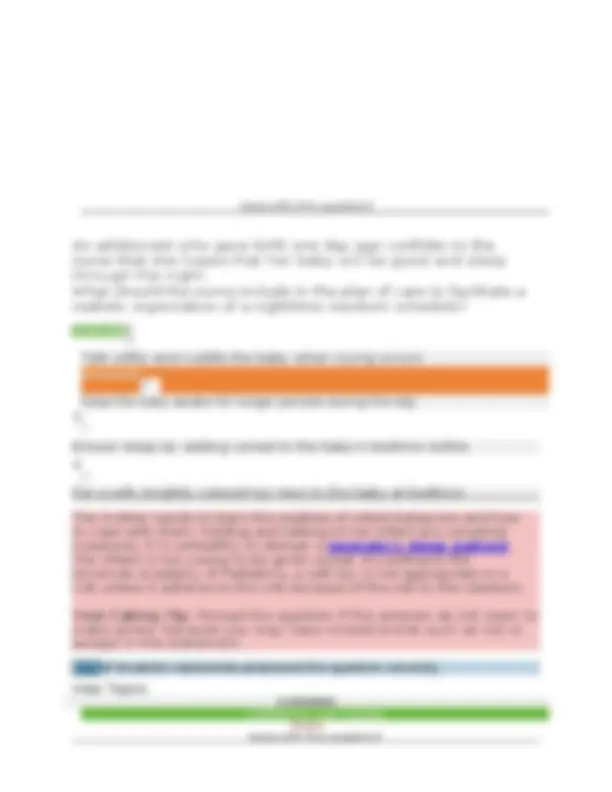


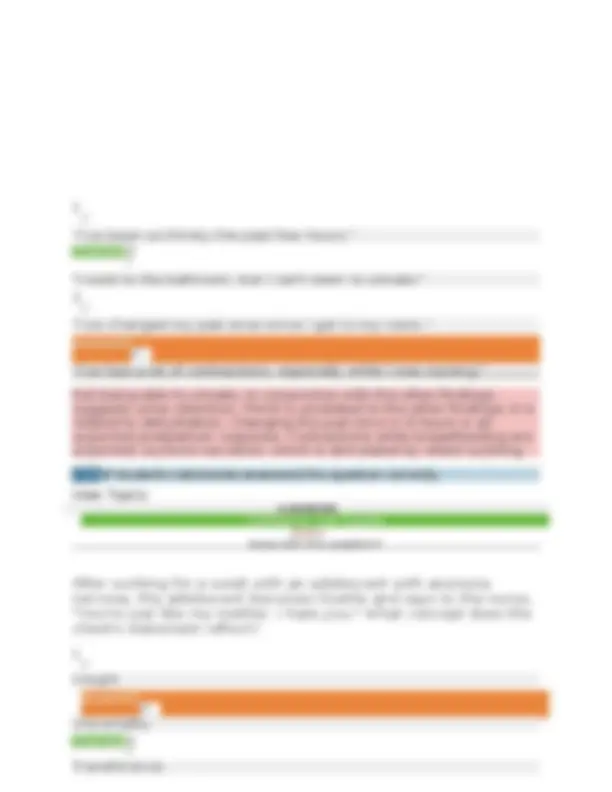

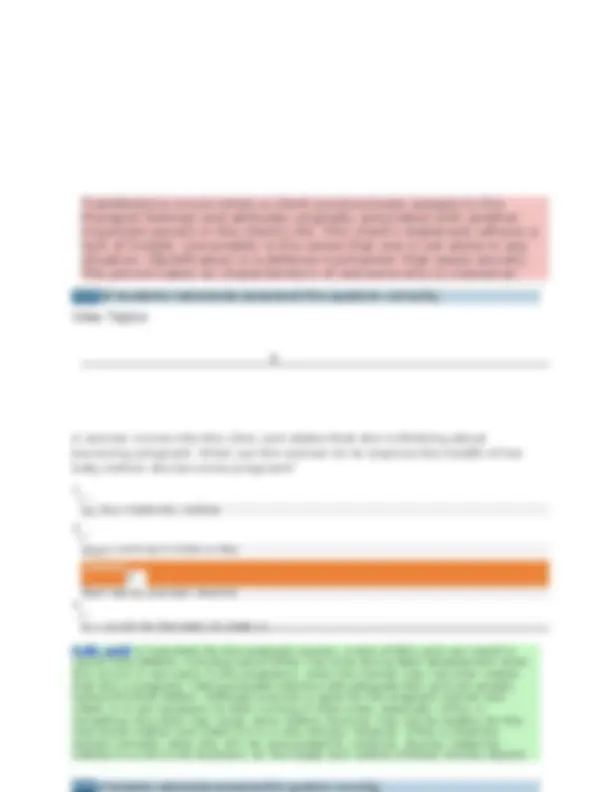

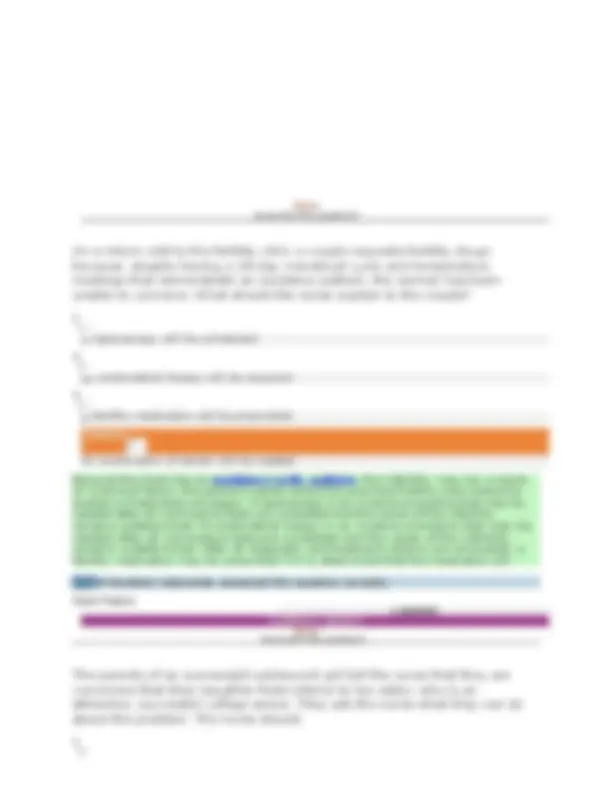

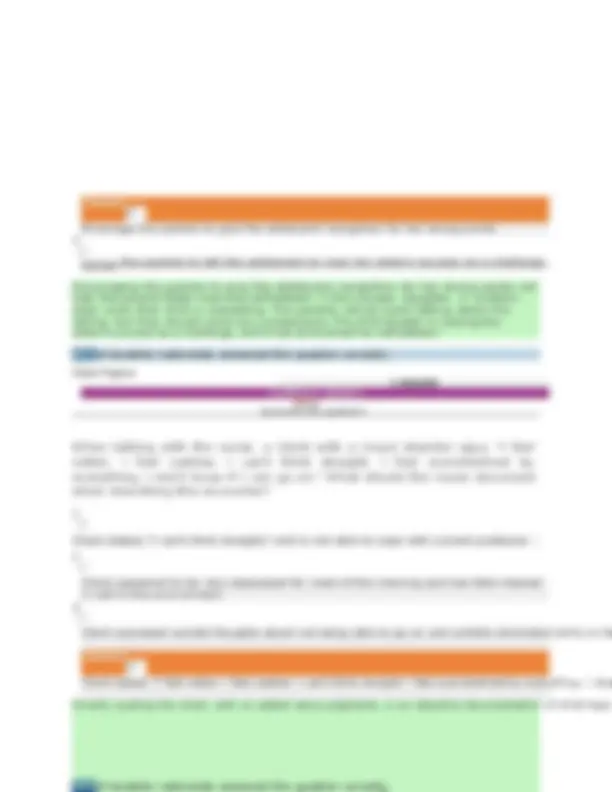

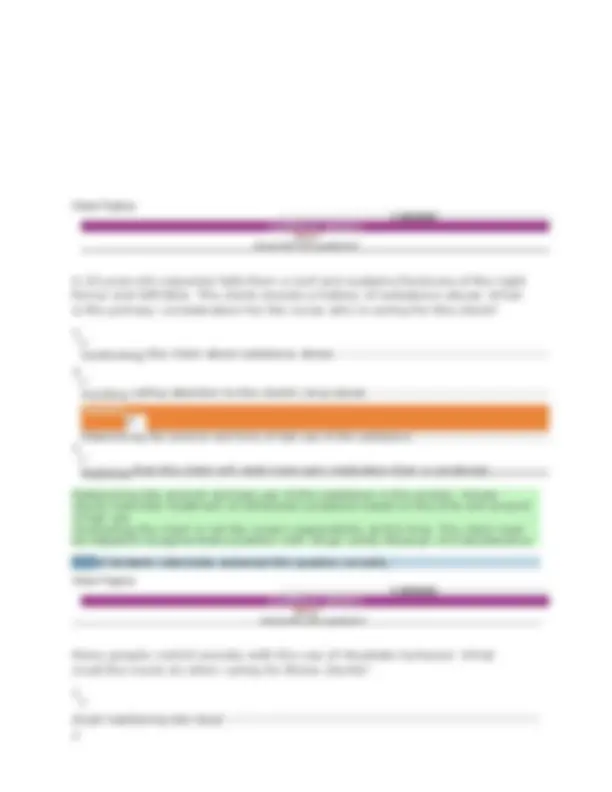

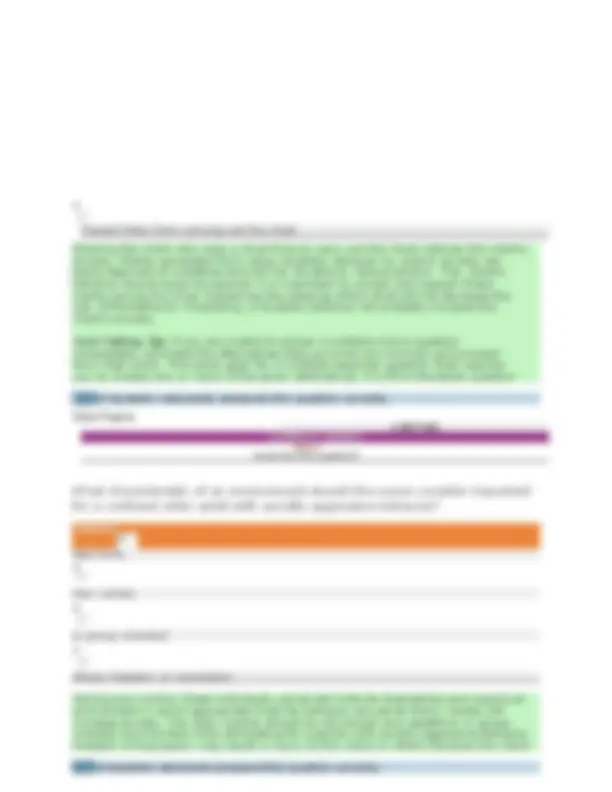

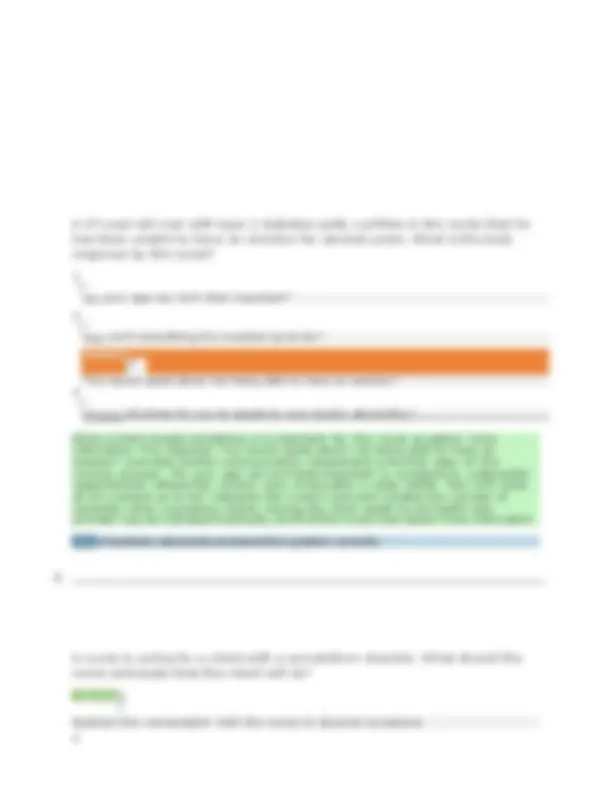

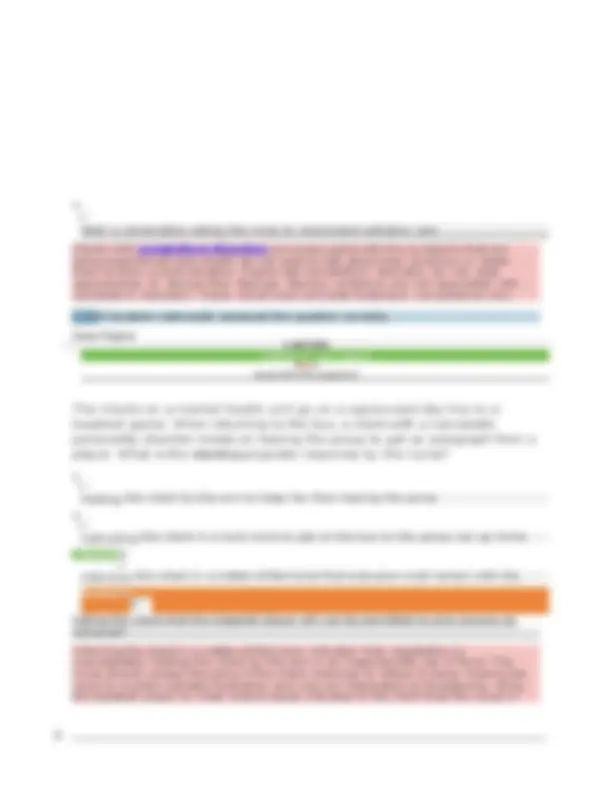
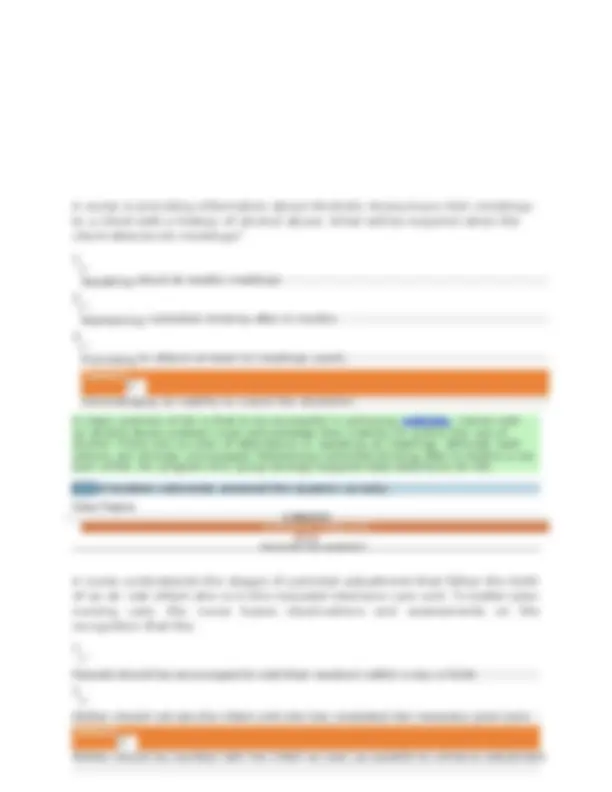

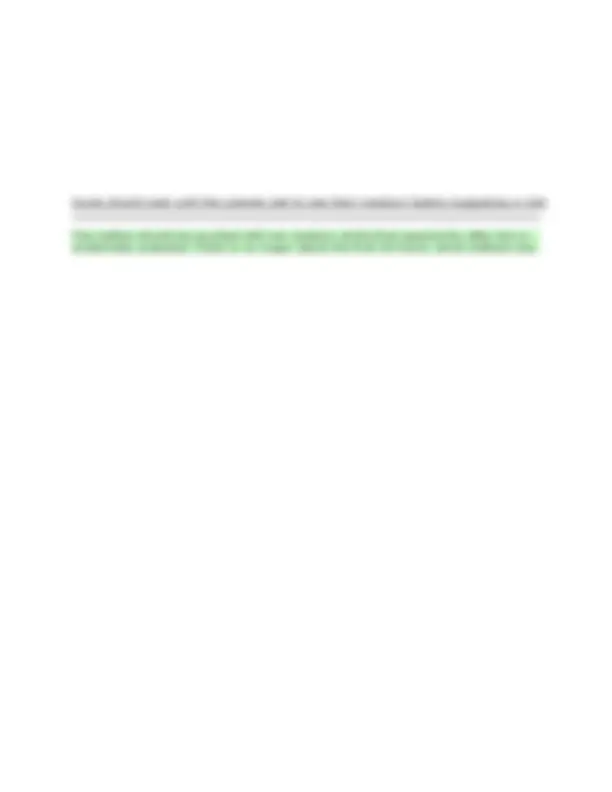
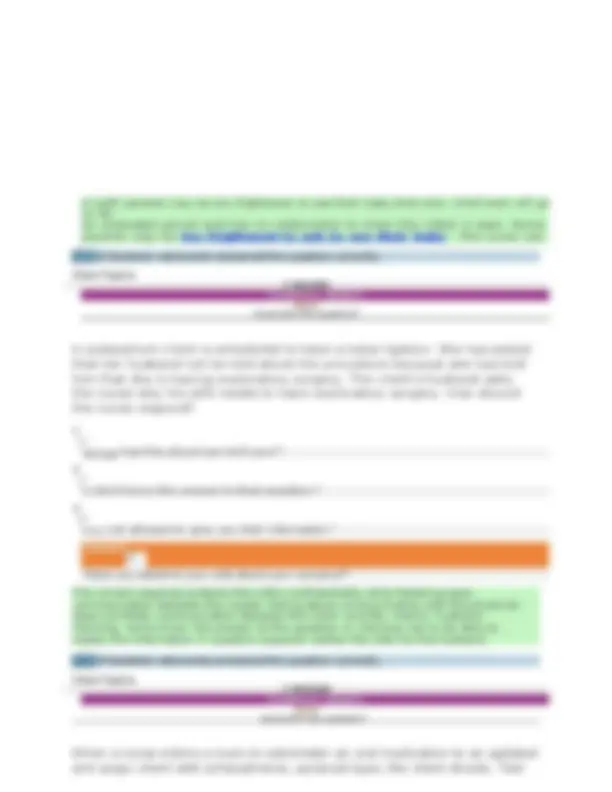


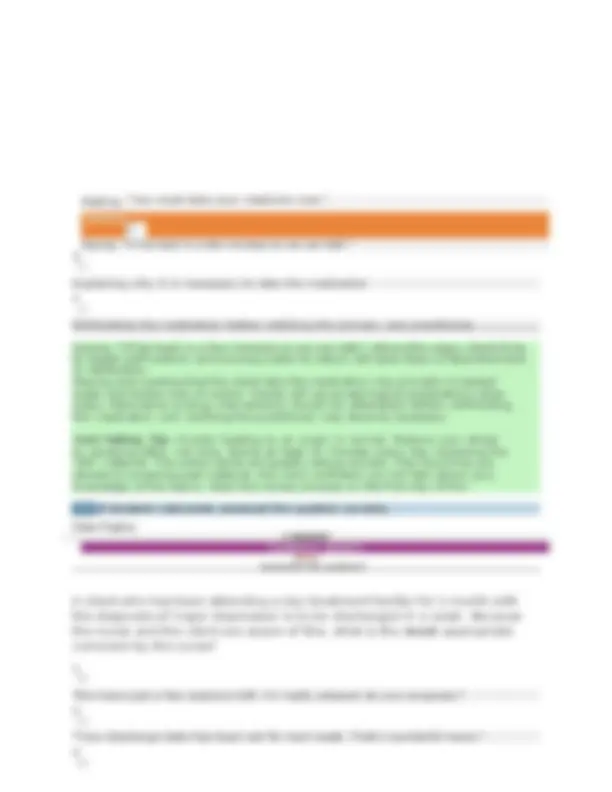

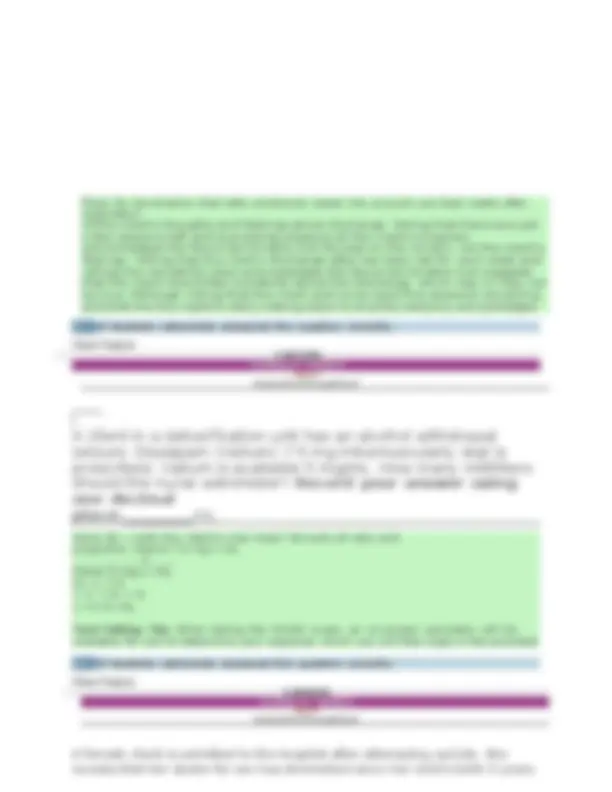


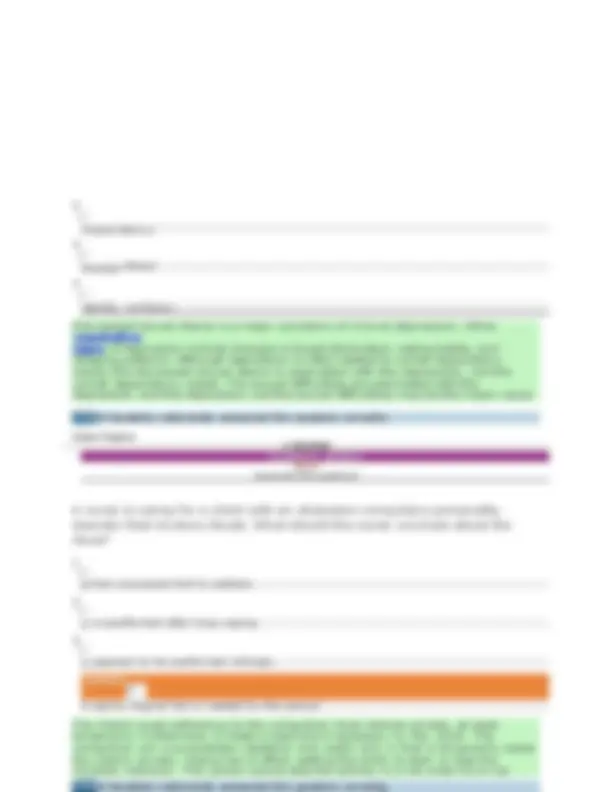

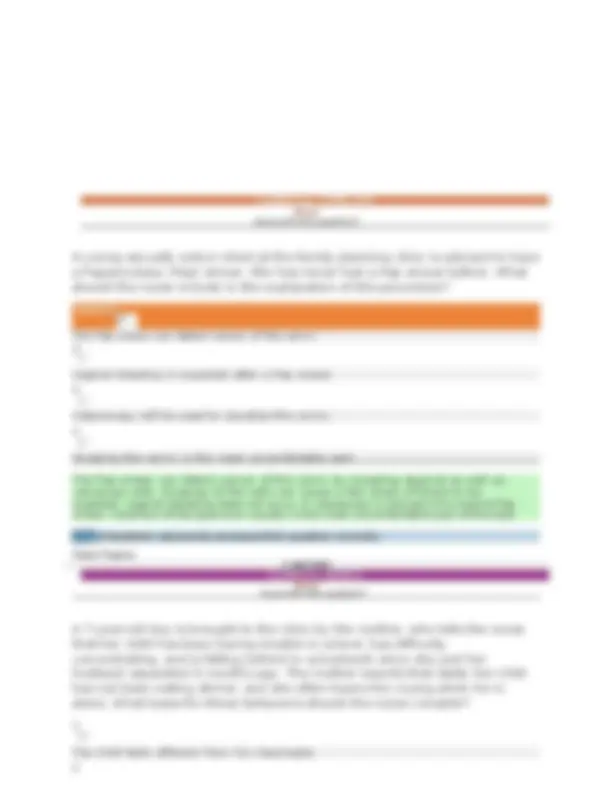

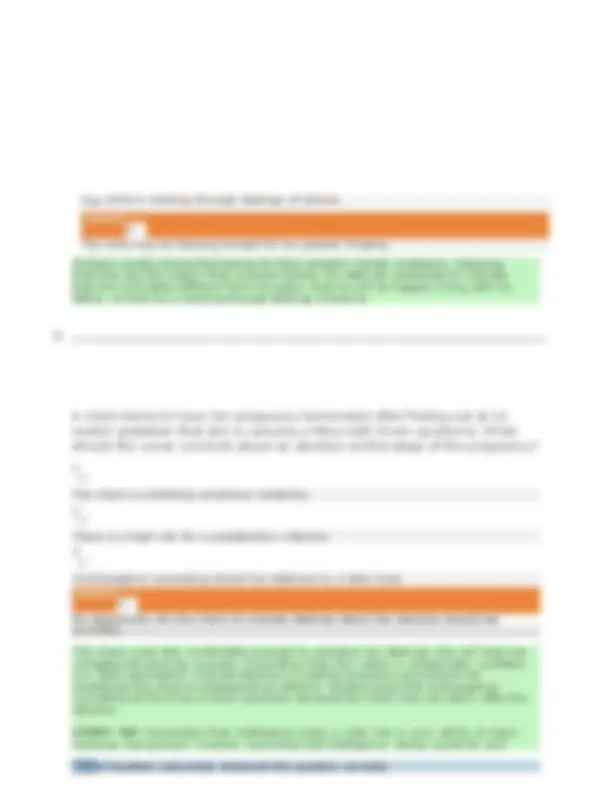



Study with the several resources on Docsity

Earn points by helping other students or get them with a premium plan


Prepare for your exams
Study with the several resources on Docsity

Earn points to download
Earn points by helping other students or get them with a premium plan
Community
Ask the community for help and clear up your study doubts
Discover the best universities in your country according to Docsity users
Free resources
Download our free guides on studying techniques, anxiety management strategies, and thesis advice from Docsity tutors
ATI PN COMPREHENSIVE PREDICTOR RETAKE GUIDE; FREQUENTLY TESTED QUESTIONS LATEST UPDATED 2024
Typology: Exams
1 / 115

This page cannot be seen from the preview
Don't miss anything!





























































































Furosemide is a potent diuretic used to provide rapid diuresis; it acts in the loop of Henle and causes depletion of electrolytes, such as potassium and sodium. Furosemide inhibits the reabsorption, not retention, of sodium. Furosemide does not affect protein metabolism. With edema, the specific gravity of the fluid more likely will be low. Test-Taking Tip: Pace yourself when taking practice quizzes. Because most nursing exams have specified time limits, you should pace yourself during the practice testing period accordingly. It is helpful to estimate the time that can be spent on each item and still complete the examination in the allotted time. You can obtain this figure by dividing the testing time by the number of items on the test. For example, a 1-hour (60-minute) testing period with 50 items averages 1. minutes per question. The NCLEX exam is not a timed test. Both the number of questions and the time to complete the test varies according to each candidate's performance. However, if the test taker uses the maximum of 5 hours to answer the Excessive loss of potassium ions Correct 3 80% of students nationwide answered this question correctly.
Retention of^ sodium^ ions 2 Negative nitrogen^ balance 4 Increase in^ the^ urine^ specific^ gravity
Confidence: Pretty sure 1140407851 View Topics Stats Issue with this question?
Refrigeration retards the growth of bacteria and may preserve the specimen for several hours. Growth of bacteria will alter the pH and the glucose and protein levels in the urine; it must be refrigerated to retard growth. Discarding the specimen and collecting another specimen later represents an unnecessary waste of time, effort, and money. Test-Taking Tip: Being emotionally prepared for an examination is key to your success. Proper use of this text over an extended period of time ensures your understanding of the mechanics of the examination and increases your confidence about your nursing knowledge. Your lifelong dream of becoming a nurse is now within your reach! You are excited, yet anxious. This feeling is normal. A little anxiety can be good because it increases awareness of reality; but excessive anxiety has the opposite effect, acting as a barrier and keeping you from reaching your goal. Your attitude about yourself and your goals will help keep you focused, Refrigerate the specimen. Correct 2 83% of students nationwide answered this question correctly. Confidence: Nailed it 1140350078 Correct 3
Take no^ special^ action. 3 Store it in the dirty utility room and send it later. 4 Discard the specimen and collect another specimen later. View Topics Stats Issue with this question?
Alert the cardiac arrest team 2 Call the laboratory to repeat the test
Take vital signs and notify the primary health care provider 4 Obtain an ECG strip and obtain an antiarrhythmic medication
Issue with this question?
Decreased glomerular filtration leads to hyperkalemia, which may cause lethal dysrhythmias such as cardiac arrest. Anemia may occur, but is not the most serious complication and should be treated in relation to the client's clinical manifestation; erythropoietin and iron supplements usually are used. Weight loss alone is not life threatening. Platelet dysfunction may occur because of decreased cell surface adhesiveness, but it is not as life threatening as hyperkalemia. Hyperkalemia Correct 3 79% of students nationwide answered this question correctly. Confidence: Nailed it 1140370911 Pain Correct 1
Anemia 2 Weight loss 4 Platelet dysfunction View Topics Stats Issue with this question?
Weight 3 Hematuria 4 Hypertension
The causative organism should be isolated before starting antibiotic therapy. Catheterization is not a routine intervention for urethritis. Although client teaching is important, it is not the priority at this time. A 24-hour urine test will not determine the infective organism causing the problem. Test-Taking Tip: Practicing a few relaxation techniques may prove helpful on the day of an examination. Relaxation techniques such as deep breathing, imagery, head rolling, shoulder shrugging, rotating and stretching of the neck, leg lifts, and heel lifts with feet flat on the floor can effectively reduce tension while causing little or no distraction to those around you. It is recommended that you practice one or two of these techniques intermittently to avoid becoming tense. The more anxious and tense you become, the longer it will take you to relax. 68% of students nationwide answered this question correctly. Teach the client how to perform perineal care. Incorrect 2 72% of students nationwide answered this question correctly. Confidence: Nailed it 1130045972 View Topics 1
Prepare for^ urinary^ catheterization. 3 Start a 24-hour urine collection. Correct 4 Obtain a urine specimen for culture and sensitivity. View Topics Stats Issue with this question?
Chemotherapy destroys the rapidly dividing cells of the oral mucosa; frequent gentle oral hygiene limits additional trauma. Although it is recommended to rinse the mouth every two hours, the client does not need to brush teeth and clean the mouth as often. Lemon juice is too caustic to the compromised mucosa. Flossing can disrupt and traumatize the gum surfaces; oral hygiene is needed more than once a day. Vigorous cleansing with hard materials can increase mucosal trauma.
Because the female's urethra is closer to the anus than the male's, it is at greater risk for becoming contaminated. Urinary pH is within the same range in both males and females. Hormonal secretions have no effect on the development of bladder infections. The 86% of students nationwide answered this question correctly. Confidence: Pretty sure 1140407846 Hormonal secretions Incorrect 2 81% of students nationwide answered this question correctly. Confidence: Nailed it 1140389927 Test-Taking Tip: After you have eliminated one or more choices, you may discover that two of the options are very similar. This can be very helpful, because it may mean that one of these look-alike answers is the best choice and the other is a very good distractor. Test both of these options against the stem. Ask yourself which one completes the incomplete statement grammatically and which one answers the question more fully and completely. The option that best completes or answers the stem is the one you should choose. Here, too, pause for a few seconds, give your brain time to reflect, and recall may View Topics Stats Issue with this question?
Altered urinary^ pH 3 Juxtaposition of the bladder Correct 4 Proximity of the urethra to the anus View Topics Stats Issue with this question?
Decreased bladder muscle tone results from the depressant effects of anesthesia and the handling of tissues and adjacent organs during surgery. Catheterization may be necessary to prevent overdistention of the bladder. Four hours may be too early to expect recovery from the depressant effects of anesthesia. Twelve and 16 hours are too long to wait to call the health care provider. This length of time without voiding may result in overdistention of the bladder. 4 hours Incorrect 1 68% of students nationwide answered this question correctly. Confidence: Nailed it 1140407856 Incorrect 4 Correct 2 8 hours 3 12 hours 4 16 hours View Topics Stats Issue with this question?
Milk the tubing gently. 2 Notify the health care provider. Correct 3 Check the patency of the catheter. Irrigate the catheter with prescribed solutions.
Checking the patency of the catheter ensures drainage and prevents bladder distention and other complications. Patency of the catheter should be established before any other intervention. Milking the tubing gently is premature; this may be necessary if the catheter is clogged and usually is required when the drainage is viscous rather than liquid. Assessment is necessary before consultation with the health care provider. Irrigation is avoided if possible because of the associated risk for
Hypercalcemi a Damaged kidneys are unable to excrete potassium, resulting in. Potassium, part of the sodium-potassium Hypouricemia will not occur, because serum uric acid is increased in clients with kidney Incorrect 4
Correct 1 Hyperkalemia 2 Hyponatremia 3 Hypouricemia